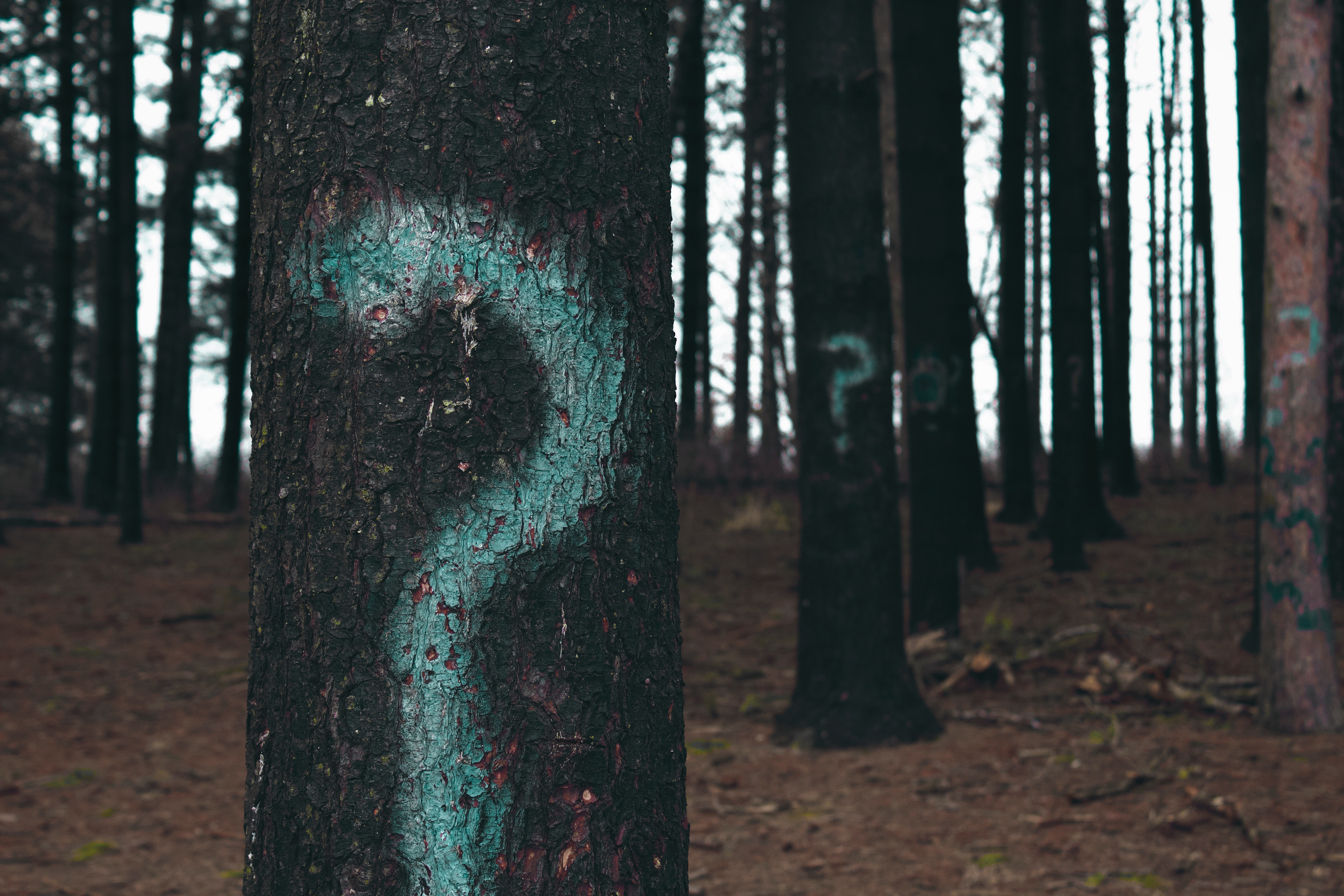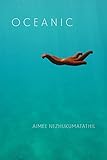To end a poem with a question is to offer an invitation. Here, the poet says, now it’s your turn. Rhetorical or direct, a question requests our participation. We sit up, re-read, and become a part of the poem.
A question, then, closes a poem with an opening. “Breathing” by Irene McKinney ends with two questions. Her poem starts with the line: “When I refuse to see the chair has presence / I trip over it repeatedly.” Yet when she smells “the oil of hands on the wooden arms of the chair” and sees the “careful fittings of the joints,” she knows the chair has place and space. She will push forward through her life, past chair and even through stream and snow, although she is “wet and cold, hunched against the touch / of the flakes.” She perseveres because she is still breathing, because our “lungs are a happiness kit / that we can carry everywhere and assemble / where there’s time and inclination.” She pauses, we imagine, and then ends: “Why not? / I repeat, I mean it, why not?”
I mean it: McKinney’s question feels entrenched and yet open, a gesture. Don’t doubt that poems are written to be read—and questions offer readers a space to enter. “Naming the Heartbeats” from Aimee Nezhukumatathil’s Oceanic is an explanation of the narrator’s penchant for pet names. She calls her children “Sugarpie, / Honeybunch, Snugglebear,” although “What I call my husband is unprintable.” She ponders the names of collected animals, but wonders about the unnamed moments of existence, ending with a beautiful question: “And what is the name for the movement we make when / we wake, swiping hand or claw or wing across our face, like trying / to remember a path or a river we’ve only visited in our dreams?”
Nezhukumatathil asks, so we’re left to wonder. A poem can leave us like that: unsure, our eyes closed, meandering and meditating. I feel the same way when I read Mary Oliver, who ended several poems with questions. In fact, her poem “How Would You Live Then?” is composed entirely of questions. “What if,” Oliver asks, “a hundred rose-breasted grosbeaks / flew in circles around your head?” And then: “What if the brook slid downhill just / past your bedroom window so you could listen / to its slow prayers as you fell asleep?” Her questions are connected by a certain sentience to the world around us—a presence that we know exists but Oliver gives a particular form. Her final question: “What if you finally saw / that the sunflowers, turning toward the sun all day / and every day—who knows how, but they do it—were / more precious, more meaningful than gold?”
Oliver’s homiletic touch comes from that concluding question, as if we are to close the book, go outside, and consider her words. Other poetic questions call me to attention and send me back through the poem to comb and cull. Analicia Sotelo’s “Ariadne at the Naxos Apartment Complex, 10am” from Virgin begins in what the narrator calls a garden, among “A/C units dripping green-black rivers, // the residue of last night’s rain / sitting in a cheap cherub’s eye.” She ends in ambiguity: “Except the light is blind this morning / like a child at a funeral // asking, What are we all standing here for?”
We don’t have the answer. A poem that ends with a question might leave us without satisfaction—but what do we desire, exactly, at the end of a poem? What does it mean to be complete? In “Dark Slides” by Chase Twichell, we look over the shoulder of a narrator who sifts through overexposed slides of her father’s carrot garden, a horse with “blood-flecked froth at the bit,” and a sled abandoned in the snow, “Footprints, but no humans visible. / Who saved this one, and why?”
A poem that ends on a question is an affirmation of the importance of questions. Seek poems that end with those open, vulnerable moments. “Why not trust / that almost everyone, even in / his own house, is a troubled guest?” asks Stephen Dunn in “The Inheritance.” In Anagnorisis, Kyle Dargan exits “Poem Resisting Arrest” with the perfect question: “This poem knew // it was dangerous to ask why?” Blas Falconer’s “Vigil” tells us that “All day, the body is / failing, the mind failing / to forgive the body for this failure.” The poem ends on an elegiac note: “You, who tended to the body, what // will you do when all / the bedding has been washed // and folded, what pain // will you tend to, now, / if not yours?”
Do you feel that? The poet gesturing to us? In “Leaving Early,” Sylvia Plath describes a room “lousy with flowers.” She’s “bored as a leopard / in your jungle of wine-bottle lamps,” and feels “stared at / By chrysanthemums” while she listens to mice “rattling the cracker packets.” Her final lines: “Lady, what am I doing / With a lung full of dust and a tongue of wood, / Knee-deep in the cold and swamped by flowers?” Plath’s question reverberates beyond the final line, as do the questions of Justin Phillip Reed in Indecency. In “Take It Out of the Boy,” the narrator is “tired / of pretending.” Told that “you always acted like / a white boy,” the narrator responds with lines “so. so black my elbows / stripe their char on the carpet.” He ends: “are we convinced?”
I like how heavy that question feels. A poem that ends with a question has a little whisper of eternity in that curved punctuation mark. Natasha Trethewey ends her book Monument with a poem that ends with a question. “Articulation,” written after Miguel Cabrera’s Portrait of Saint Gertrude, ponders Gertrude’s devotion to the Sacred Heart. The narrator looks at her among “quill, inkwell, an open book, // rings on her fingers like Christ’s many wounds” and can’t help but think about her mother’s last portrait. She sees her mother’s face; her mother’s wounds. Her mother’s murder. How her mother “came to me / in a dream, her body whole again but for / one perfect wound, the singular articulation // of all of them: a hole, center of her forehead, / the size of a wafer—light pouring from it.”
She ends her poem with two questions: “How, then, could I not answer her life / with mine, she who saved me with hers? // And how could I not—bathed in the light / of her wound—find my calling there?”
We will never know all of the answers in poetry—but we are blessed by the questions.
Image credit: Unsplash/Evan Dennis.














